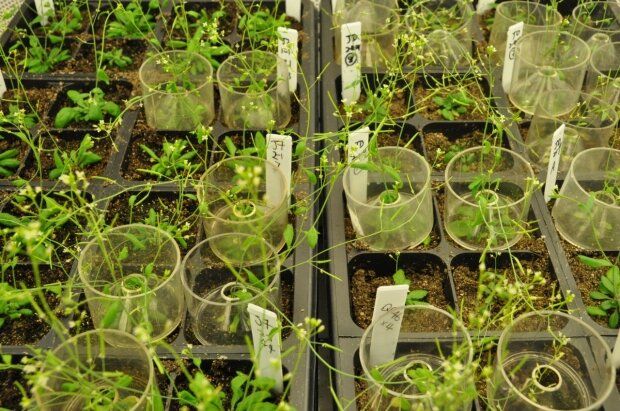Plant scientists have long known that crop yield is proportional to the dose of nitrogen fertilizer, but the increased use of fertilizers is costly and harmful to the environment. Until now, the underlying mechanisms by which plants adjust their growth according to the nitrogen dose has been unknown—a key finding that could help enhance plant growth and limit fertilizer use.
In a new study published in the Proceedings of the National Academy of Sciences (PNAS), plant genomic scientists at New York University’s Center for Genomics & Systems Biology discovered the missing piece in the molecular link between a plant’s perception of the nitrogen dose in its environment and the dose-responsive changes in its biomass.
Taking a novel approach, the NYU researchers examined how increasing doses of nitrogen created changes in plants’ genome-wide expression as a function of time. They then used mathematical models to investigate the rate of change of messenger RNA (mRNA) for thousands of genes within the genome to this experimental set up.
